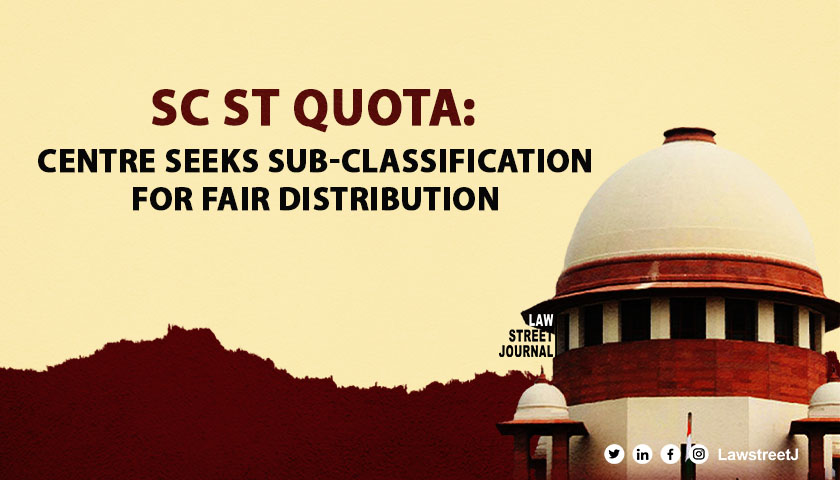NEW DELHI: The Centre on Wednesday told the Supreme Court that the enabling of sub-classification of SC/ST and other backward classes would ensure trickle-down effect of reservations, besides providing the State free-play to frame appropriate policy in furtherance of the high constitutional ideal of social justice.
Maintaining that this would also achieve de-facto equality of opportunity, Solicitor General Tushar Mehta, told a seven-judge Constitution bench led by Chief Justice of India D Y Chandrachud that in order to achieve the actual objective behind reservations, the rationalisation is key (while maintaining the levels and extent of reservations).
He said proliferation and deepening of the reservation benefits are necessary.
The sub-classification of the said benefits is a key measure which goes a long way to achieve the said objective. This ensures that there is a trickle-down effect of reservations, he said.
Making his submissions, he contended that the rationalising of reservation through enabling sub-classification of quota for SC/STs would further the guarantee of social justice and further enable the state to penetrate into the lower segments within the backward classes.
The court is seized of a legal question whether a state government is empowered to make a sub-classification in the scheduled castes (SCs) and scheduled tribes (STs) for reservation in admissions and public jobs.
The matter arose out of the Punjab Scheduled Castes and Backward Classes (Reservation in Services) Act, 2006 which provided 50% quota and the first preference to Valmikis and Mazhabi Sikhs castes in public jobs inside the quota meant for the SCs.
The bench, also comprised Justices BR Gavai, Vikram Nath, Bela M Trivedi, Pankaj Mithal, Manoj Misra and Satish Chandra Mishra.
The matter involved two dozen petitions, led by the Punjab Government against the 2010 verdict of the Punjab and Haryana High Court.
Mehta said that the Constitution permits reservations at the level of higher education, entry-level in the government service sector and promotion in the government services. The persons who would most likely be capable of taking advantage of this earmarking of seats/posts would be persons who are relatively forward within the backward class, he said.

















